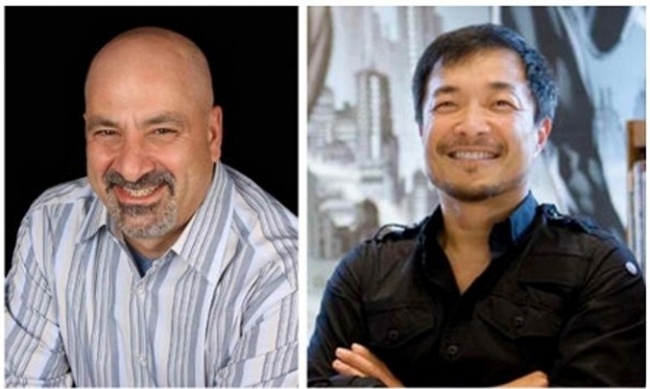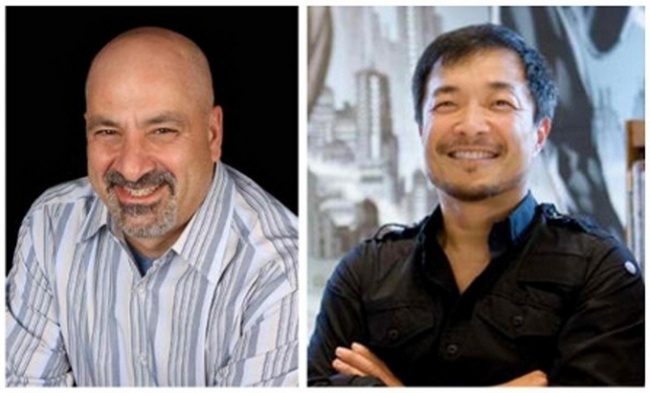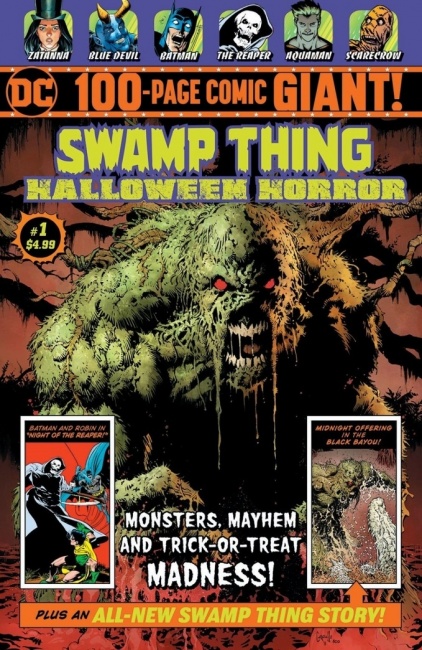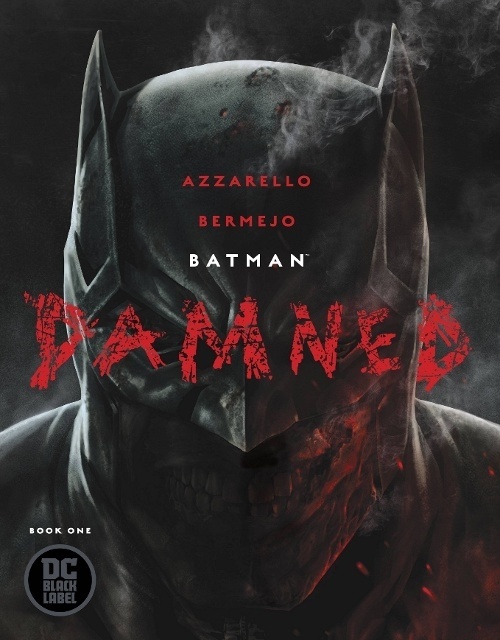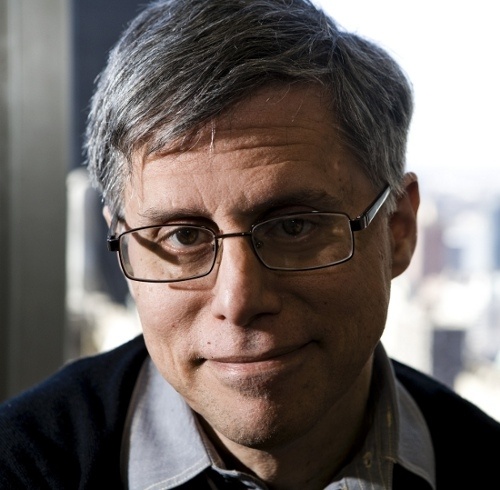We talked a few months ago, last summer (see "ICv2 Interview: DC Co-Pubs on Trends, Walmart, Mgt. Changes"). Have you seen any changes in the market since then, or any trends that you're seeing now that weren't happening then?
Dan DiDio: Trends‑wise, for us, we keep an eye on everything. Since we spoke, we've been pushing out the DC Giants in Walmart. We've seen some growth in that area and actually some good sell‑through there. That's good for us. It's nice to see there's some activity outside of just the direct market itself, and also the book market.
Variant covers seem to still be very prevalent and still driving a lot of sales. We have our variant covers on an open‑to‑buy program. In some cases, a variant might actually sell better than the primary cover, based upon the artist or something like that. That's a trend we see.
Events still work. Doomsday Clock is holding up very well for us. Heroes in Crisis started off very strong, which is great. Our goal this year has always been to solidify the DCU with key talent on key creations and characters.
The launch of the Black Label line is important to us. Next year, we have Ink and Zoom launching, which will be exciting, too.
One last thing. That's the big trend, really, is the growth in the young adult marketplace. We've been tracking that pretty closely. We see those books and those things really taking the top spots in the book market. That's why we're excited about our books getting ready. We're ready to compete there.
Didio: We've increased the output there by about 35 percent. That's good per store. Also, we're going to be expanding the line. We did a special in October, for Halloween.
We're doing a special in November/December for the holidays. Then we'll be adding two new titles, a Flash title and a Swamp Thing title, in February of next year.
You talked a little bit about 2018. One thing that happened very recently was the full frontal nudity in Batman: Damned (see "’Batman: Damned’ Content Altered")…
Didio: You get the good question, Jim.
Lee: [laughs]
Our main question is "Why did you change your minds?" At one point, somebody thought it was going to be OK. Then later, you decided it wasn't. Why did you change your minds?
Lee: The truth is we didn't change our minds. It was flagged early on, as we do in all our editorial processes. Dan and I were both pointed to the page. What we saw there was approvable.
It was pretty dark. Then, when it went to production, someone recognized that the pages were dark in general, across the entire book. They lightened the pages. There were things that were drawn, that were not in the proofs that we signed off on. Yeah, it was a surprise.
It printed differently than you saw it?
Lee: There's no way we would have approved that. Talking to Brian and Lee, the creators of the book, they're creators. They're meant to push the envelope. The whole point of Black Label was to give creators the freedom to tell the best stories they had in mind, giving them the best characters, giving them the creative freedom, giving them format and the support to go out there and tell really epic standalone stories.
Ultimately, on an editorial level, this is not something that we envisioned for the line in that it's not a story about that. In our opinions, it doesn't add anything to the story. It's a fantastic story. On one hand, it got a lot of attention and notoriety for the line. On the other hand, we didn't want it to deflect from what they're doing, which is creating an awesome story about Batman and Joker. We're confident, going into the second and final issues, that fans will be buying the book because of the story that they read.
When we talked last time, we talked a little bit about the softness in the market the last year, year and a half, but we didn't really ask this question: to what extent you think those changes are secular versus cyclical? In other words, are they all related to content, or are there other factors that are at play?
Lee: I think some of it's cyclical. We're coming off an all‑time high, at least for our trade business; 2016, 2017 were fantastic years for us. The hype and excitement around Batman vs. Superman and Suicide Squad led to really incredible, all‑time sales marks for The Killing Joke, Dark Knight Returns.
In a way, those were overachieving years. This year, our trade business is softer, but it's still strong as a category. Our periodicals have actually over‑performed, higher than what we forecast this year. That's actually been the shining light.
I think it's a cyclical business. We just had a really, really good run, about six or seven years, that culminated in these two marquee movies that made a huge impact on our trade business. It's a mature business. We're hitting double‑digit growth in some of those categories. That was an amazing time.
That said, we have other great things coming, other great media productions on the horizon. We have the Watchmen TV show next year. There are opportunities for us to, again, really expand the marketplace by selling more and more trades.
This was actually raised in an interview with your former boss, Paul Levitz (see "ICv2 Interview: Paul Levitz"). He raised the question of whether the superhero itch is getting scratched so many ways in media that perhaps there's less demand for it in comics because that demand is being satisfied other ways. What are your thoughts about that? In some ways, the media adds; in some ways, maybe it's a challenge.
Didio: We look at that as a challenge. I do in my other interviews, I'll say it here. I look at the TV and film as the competition for the publishing. I have to. If it does fill that itch for that superhero need, then we have to step up.
We have to be more innovative and really show that we're the source material and that this is where all the ideas come from. I love the fact that the TV shows and the films are derivative of the comics. I never want the comics to be derivative of the TV shows.
We should always be the leader. We need to remain relevant in the marketplace. The only way we can do that is we need to show that this is the source of the ideas and inspiration for all the other things that people are enjoying.
Lee: Our goal is not to make it cannibalistic or a zero‑sum equation. That's why we're excited for [streaming subscription service] DC Universe, that we have the opportunity to showcase our content on books right next to the media adaptations that they inspire.
It's our way of really showcasing and educating a fan base that might have come to the platform because they know the characters but not necessarily the comic books that inspired the shows and the movies. It's a really cool opportunity.
Click here for Part 2.



